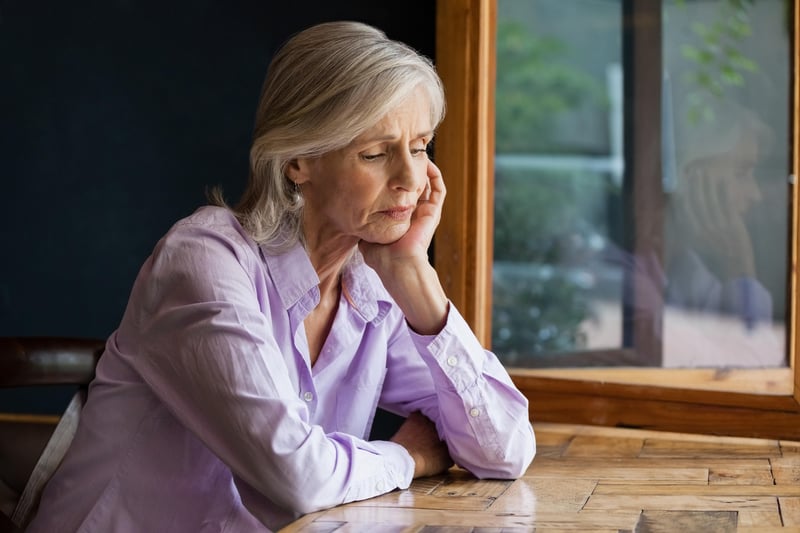Get Healthy!

- Denise Mann
- Posted June 19, 2023
Global Study Shows Loneliness Can Shorten Life Spans
There is an epidemic of loneliness and isolation today, and the consequences can be deadly, researchers say.
Folks who reported that they were socially isolated or felt lonely were more likely to die early from all causes including cancer, according to a sweeping review of 90 studies that included more than 2.2 million people from around the globe.
Exactly how loneliness or social isolation affects a person's health and well-being is not fully understood, but many theories exist, the researchers reported.
People who are socially isolated or lonely may be less likely to eat a healthy diet and get regular exercise and more likely to smoke and consume alcohol. In addition, social isolation is linked to inflammation and weakened immune systems. People who are socially isolated may be less likely to receive medical care due to their smaller social networks.
Social isolation and loneliness are not one and the same, the researchers pointed out. Social isolation refers to a lack of contact with other people. By contrast, loneliness is the feeling of being alone, regardless of social contact.
For the study, researchers led by Maoqing Wang and Yashuang Zhao from Harbin Medical University in China reviewed 90 studies. Folks who reported being socially isolated and feeling lonely were more likely to die early from all causes including cancer. What's more, social isolation was linked to an increased risk of dying from heart disease.
The research did have its share of limitations, including differing measures of social isolation and loneliness in the studies. Most of the studies took place in high-income countries, so the findings may not be generalizable for less affluent nations.
The findings are published online June 19 in Nature Human Behaviour.
Julianne Holt-Lunstad is director of the Social Connection and Health Lab at Brigham Young University in Provo, Utah. She was not involved with the new review, but much of her research is devoted to the health effects of loneliness.
"[This study] is consistent with my [2015] meta-analysis that found that both isolation and loneliness are significant predictors of [dying],"she said. "This is also consistent with the U.S. Surgeon General Advisory on isolation and loneliness."Holt-Lunstad was one of the main authors of the advisory.
While isolation and loneliness can overlap, they don't always travel together, she said.
"An individual can be lonely and not isolated, and isolated and not lonely,"Holt-Lunstad said. "This data suggests that isolation is the stronger [risk] of the two."
Public health awareness efforts should focus on loneliness and social isolation, she said.
"We should also be focused on objective isolation. I repeatedly hear people diminishing the importance of isolation,"Holt-Lunstad said. "We cannot assume that isolation is good for us even if we choose it or prefer it. This data from 90 studies, suggests that isolation significantly increases our risk for earlier death."
Robin Yabroff is the scientific vice president of health services research at the American Cancer Society.
There's lots to do to help combat social isolation and loneliness and improve health, she said.
"The U.S. Surgeon General recently released an advisory on the Healing Effects of Social Connection and Community that highlighted the adverse effects of loneliness for individuals and public health and made a number of recommendations for increasing awareness of, recognizing and addressing loneliness,"Yabroff said.
These include participating in social and community groups to foster a sense of belonging, seeking help during times of struggle with loneliness or isolation by reaching out, and reducing practices that lead to feelings of disconnection such as excessive social media use, she added.
More information
Learn more about the health effects of loneliness in the U.S. Surgeon General's recent report.
SOURCES: Julianne Holt-Lunstad, PhD, professor, psychology and neuroscience, and director, Social Connection and Health Lab, Brigham Young University, Provo, Utah; Robin Yabroff, PhD, scientific vice president, health services research, American Cancer Society, Atlanta; Nature Human Behaviour, June 19, 2023





